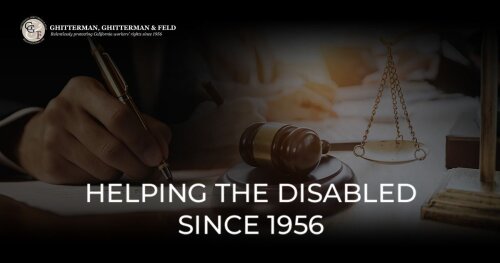Best Wrongful Death Lawyers in Vermont
Share your needs with us, get contacted by law firms.
Free. Takes 2 min.
Or refine your search by selecting a city:
List of the best lawyers in Vermont, United States
About Wrongful Death Law in Vermont, United States
Wrongful death law in Vermont is designed to provide legal recourse for the families and dependents of individuals whose death was caused by the actions or negligence of another person or entity. A wrongful death claim is a civil lawsuit distinct from any criminal charges that may be brought in connection with the death. These laws aim to compensate surviving family members for the losses they experience as a result of the untimely passing of their loved one. Compensation may cover a variety of losses, including financial support, companionship, and funeral expenses.
Why You May Need a Lawyer
The process of pursuing a wrongful death claim in Vermont can be complex and emotionally challenging. Here are common reasons why you may need a lawyer:
- Determining Liability - Establishing who is legally responsible for the death can be complicated, especially in cases involving multiple parties or institutions.
- Navigating Insurance Companies - Insurers may attempt to limit payouts or dispute claims, making professional legal representation important.
- Calculating Damages - A lawyer can help calculate and pursue the full range of damages you may be entitled to, including economic and non-economic losses.
- Meeting Legal Deadlines - There are strict deadlines, called statutes of limitations, to file a wrongful death lawsuit. An attorney can ensure you meet these requirements.
- Negotiating Settlements - Skilled negotiation can lead to better settlement offers without the need for a trial.
- Representing You in Court - If a fair settlement cannot be reached, you need an experienced advocate to argue your case before a judge or jury.
Local Laws Overview
Vermont's wrongful death statute is primarily found in Title 14, Chapter 71 of the Vermont Statutes Annotated. Key aspects include:
- Who Can File - The personal representative of the deceased person's estate is typically responsible for filing a wrongful death lawsuit on behalf of eligible beneficiaries, such as spouses, children, or other dependents.
- Statute of Limitations - In Vermont, a wrongful death lawsuit must be filed within two years from the date of death. Failing to do so usually forfeits your right to pursue a claim.
- Recoverable Damages - Damages may include medical and funeral expenses, lost wages and benefits, loss of companionship and guidance, and compensation for pain and suffering prior to death.
- Distribution of Damages - Any compensation awarded in a Vermont wrongful death case is distributed according to the decedent's will, or, if there is no will, according to the laws of intestate succession.
- Comparative Negligence - Vermont follows a modified comparative negligence rule. If the deceased is found partially at fault, compensation may be reduced proportionally, and claims are barred if the deceased was 50 percent or more at fault.
Frequently Asked Questions
What is a wrongful death under Vermont law?
Wrongful death occurs when a person's death is caused by the wrongful act, neglect, or default of another individual or entity, and the decedent could have filed a personal injury claim if they had survived.
Who can file a wrongful death lawsuit in Vermont?
In Vermont, the personal representative of the deceased person's estate is typically responsible for filing a wrongful death claim on behalf of the surviving family members or other eligible beneficiaries.
What kind of damages can be recovered in a wrongful death claim?
Recoverable damages can include medical and funeral expenses, loss of income, loss of companionship, pain and suffering of the deceased prior to death, and other economic and non-economic losses.
How long do I have to file a wrongful death lawsuit in Vermont?
Vermont law sets a statute of limitations of two years from the date of death to file a wrongful death claim. Waiting past this deadline usually results in losing the right to recover damages.
Can more than one person benefit from a wrongful death lawsuit?
Yes, multiple family members such as spouses, children, or other dependents can benefit. The court or personal representative will distribute any damages according to the will or state succession laws.
What if the deceased was partially at fault for the accident?
Vermont uses a modified comparative negligence rule. If the deceased is found less than 50 percent at fault, damages are reduced in proportion to their percentage of fault. Claims are not allowed if fault is 50 percent or greater.
Does a criminal case affect my right to file a wrongful death claim?
No. A wrongful death case is a civil matter and separate from any criminal proceedings. You can file a civil wrongful death claim regardless of whether criminal charges are brought.
Do I need a lawyer to file a wrongful death lawsuit?
While not legally required, working with an experienced wrongful death lawyer helps ensure your claim is managed correctly, deadlines are met, and you receive full and fair compensation.
What happens if there is no will?
If there is no will, Vermont's laws of intestate succession determine how wrongful death damages are distributed among the surviving family members, usually beginning with the spouse and children.
Can I settle a wrongful death claim outside of court?
Yes. Many wrongful death claims are resolved through negotiated settlements with the responsible party or their insurance company, which can avoid a lengthy court process.
Additional Resources
If you need more information or assistance regarding wrongful death in Vermont, the following resources can be helpful:
- Vermont Judiciary - Provides court forms, rules, and information about the civil justice system.
- Vermont Bar Association - Offers resources to help find qualified attorneys and learn more about your legal rights.
- Office of the Vermont Attorney General - Can provide guidance on legal rights and civil enforcement matters.
- Local victim advocacy organizations - Nonprofit groups often offer support services, referrals, and information.
Next Steps
If you believe you may have a wrongful death claim in Vermont, consider taking the following steps:
- Consult with an experienced wrongful death attorney as soon as possible to discuss your case and understand your rights.
- Gather and preserve any evidence related to the death, such as medical records, accident reports, witness statements, and photographs.
- Request letters of administration or probate appointment for the deceased's estate, if you are the personal representative.
- Keep detailed records of your expenses and losses related to the death.
- Be mindful of the two-year statute of limitations and initiate the legal process promptly.
- Rely on professional legal advice to navigate communications with insurance companies or opposing parties.
Seeking legal help early can ensure that your case is handled effectively and increase your chances of receiving the compensation you deserve.
Lawzana helps you find the best lawyers and law firms in Vermont through a curated and pre-screened list of qualified legal professionals. Our platform offers rankings and detailed profiles of attorneys and law firms, allowing you to compare based on practice areas, including Wrongful Death, experience, and client feedback.
Each profile includes a description of the firm's areas of practice, client reviews, team members and partners, year of establishment, spoken languages, office locations, contact information, social media presence, and any published articles or resources. Most firms on our platform speak English and are experienced in both local and international legal matters.
Get a quote from top-rated law firms in Vermont, United States — quickly, securely, and without unnecessary hassle.
Disclaimer:
The information provided on this page is for general informational purposes only and does not constitute legal advice. While we strive to ensure the accuracy and relevance of the content, legal information may change over time, and interpretations of the law can vary. You should always consult with a qualified legal professional for advice specific to your situation.
We disclaim all liability for actions taken or not taken based on the content of this page. If you believe any information is incorrect or outdated, please contact us, and we will review and update it where appropriate.
Browse wrongful death law firms by city in Vermont
Refine your search by selecting a city.










